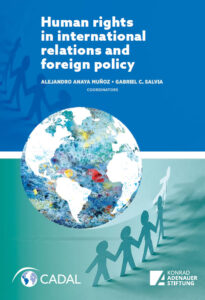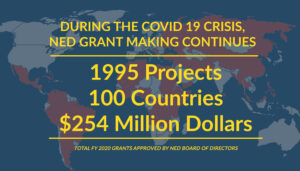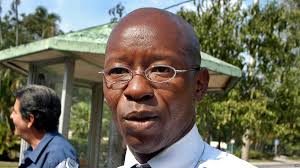 As democratic backsliding has spread across the globe, human rights are increasingly seen as “losing” or having “failed,” notes James A. Goldston, executive director of the Open Society Justice Initiative.
As democratic backsliding has spread across the globe, human rights are increasingly seen as “losing” or having “failed,” notes James A. Goldston, executive director of the Open Society Justice Initiative.
In recent years, as democracy has receded and authoritarianism has risen in much of the globe, human rights are getting a large share of the blame, whether for “provoking sharp backlash from illiberal strongmen [and] right-wing populists,” for acting with “hubris” in refusing to “acknowledge its failures” or for not taking “seriously the forces that lead so many people to vote in majoritarian strongmen in the first place,” he writes for Just Security:
So, it is said, rights defenders place too much emphasis on moral principle to the exclusion of real-world results. As a rights lawyer, I take pride – perhaps too much – in trying to stand on what I see as the correct side of an issue. And it’s true that popular support for democracy and rights rests at least as much on their ability to deliver social and economic advances for real people. The human rights movement is often most effective when it marries principle to the pragmatic reality of everyday struggles through strategic planning and nimble adjustment.
But the pathways to “winning” don’t require that we abandon the movement’s moral foundations or its distinctive methodologies, Goldston insists.
 Recent studies have shown that democracy and human rights worsened in more than 80 countries since the onset of COVID-19, especially in highly repressive states, the Becker Friedman Institute’s Natalia Lamberova and Konstantin Sonin observe.
Recent studies have shown that democracy and human rights worsened in more than 80 countries since the onset of COVID-19, especially in highly repressive states, the Becker Friedman Institute’s Natalia Lamberova and Konstantin Sonin observe.
What are the chances that human rights will prevail and flourish in a global context still dominated by the power of sovereign states, jealous of external interference and holders of interests that are often far from coinciding with the promotion of human dignity? ask Alejandro Anaya Muñoz and Gabriel C. Salvia, the co-editors of a recent book (above).
On what kind of arguments does the claim or demand that affirms that human rights prevail over the sovereignty and interests of the States and the economic and political elites in power rest? What obstacles of yesteryear and what new challenges face the promoters and defenders of equality, freedom and human dignity in the world? These questions guide and inspire the contributions to The Limits of Human Rights Foreign Policy and the Importance of International Democratic Solidarity.

Radio Marti
This book summarizes the work and challenges of CADAL in the promotion of human rights and international democratic solidarity, ideals shared with the Konrad Adenauer Foundation, which helped fund the publication, with contributions from Alejandro Anaya Muñoz, Julio Montero, Günter Nooke, Yevgeniy A. Zhovtis, Brian Schapira, Gabriel C. Salvia, Manuel Cuesta Morúa (right) and Sybil Rhodes.







